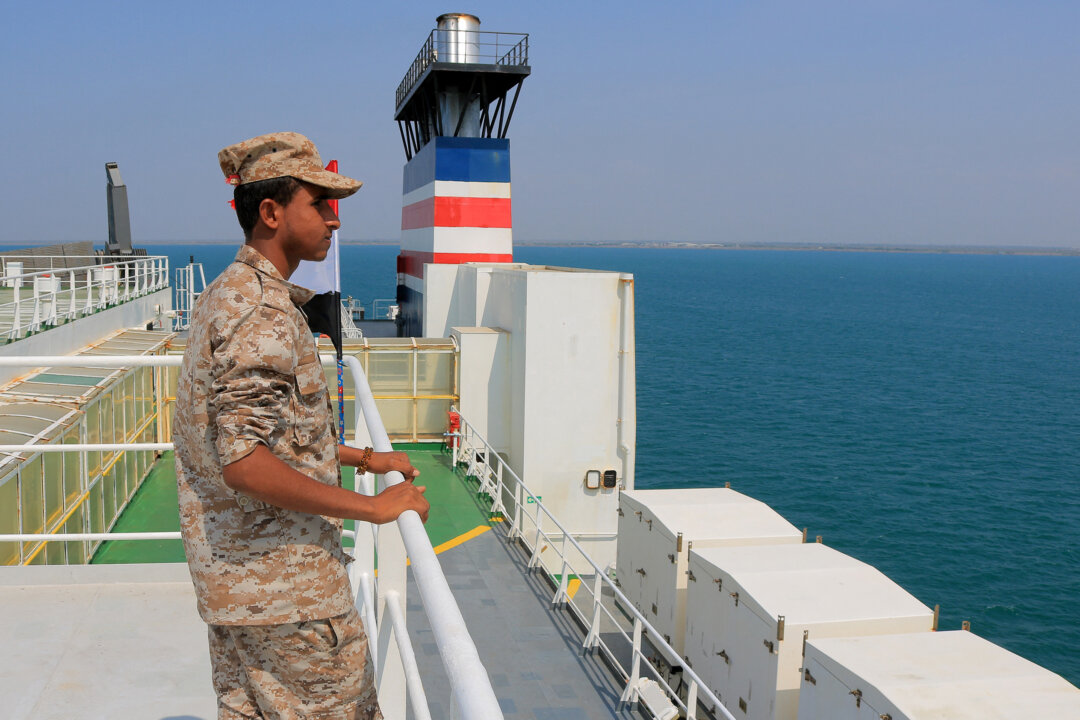


As global supply chains appeared to be recovering from the pandemic disruptions, a new crisis looms on the horizon, potentially carrying significant implications for the global economy.
In recent weeks, a surge in attacks on commercial ships in the Red Sea, orchestrated by Iran-backed Houthi rebels in Yemen, has prompted growing alarm in Washington as it poses a significant and immediate threat to global trade.
Despite the longer sailing times, shippers are now increasingly avoiding the Red Sea.
Every year, around 19,000 ships travel through the Suez Canal. Since its completion in 1869, the waterway has served as one of the world's most important conduits, connecting Asia and Europe. And the Red Sea is the Suez Canal's sole southern entry point.
Many believe that the actions by the Houthi rebels to disrupt international shipping lanes are not only an act of war but also an attack on the global economy.
The disruption of Red Sea transit would necessitate longer routes around Africa, mostly via the Cape of Good Hope. To avoid attacks, some of the world's top oil and shipping companies, including Maersk, Hapag Lloyd, MSC, and oil major BP, announced plans to skip the Red Sea route.
Related Stories
According to energy market data provider Vortexa, routes from India to northern Europe, for example, will now take 38 days instead of 24 days, which is a 58 percent increase, and shipping from the Mediterranean to Southeast Asia route will take 40 days instead of 23 days, an increase of roughly 74 percent.
The added mileage would result in higher freight and insurance costs, as well as shipping delays and port congestion.
According to supply chain experts, the change in routes will have an immediate impact on supply chain operations throughout the holiday season, causing major disruptions for manufacturers and retailers in Europe and the United States.
Christopher Tang, a professor at the UCLA Anderson School of Management, believes these attacks would have an impact on the U.S. economy.
“As the United States is shifting its sourcing away from China, most exports from India and Vietnam are shipped through the Red Sea via the Suez Canal. This episode triggers another supply chain disruption,” he told The Epoch Times.
“The United States needs to reroute shippers from India and all other Southeast Asian countries through the Cape of Good Hope or through the Pacific Ocean. The cost will go up, as will the delay. This disruption will cause prices to increase, which will hurt the U.S. economy in the near future,” Mr. Tang said.
The attacks could continue “until the conflict in Israel is resolved, which is unlikely to happen anytime soon.”
“These attacks have to stop. They need to stop. They’re unacceptable,” National Security Council spokesperson John Kirby told reporters on Dec. 19.
“The United States and our allies and our partners will do what we have to do to counter these threats and to protect these ships.”
Due to the growing risk to the global economy, the United States has formed a coalition to stand up to these attacks. On Dec. 18, the Pentagon announced a new multinational security initiative to secure safe marine transit in the Red Sea.
As part of the effort, ships and aircraft from multiple nations will join the United States in performing maritime surveillance and taking defensive measures to protect commercial ships from attacks.
Secretary of Defense Lloyd Austin announced the security initiative, dubbed "Operation Prosperity Guardian," in a statement.
"The recent escalation in reckless Houthi attacks originating from Yemen threatens the free flow of commerce, endangers innocent mariners, and violates international law," Mr. Austin said.
The countries that joined the effort include the United Kingdom, Bahrain, Canada, France, Italy, the Netherlands, Norway, the Seychelles, Spain, and others.
Mr. Kirby said it’s “too soon to know what kind of impact it’s actually going to have on the global economy.”
That’s why the United States is trying to get ahead of the situation by building an alliance and fleshing it out to confront these threats, he explained.
Meanwhile, the Biden administration is conducting a review to determine whether the Houthis should be designated as a terrorist group. The Houthi rebels claimed that the current attacks are in support of the Palestinians.
Oil prices rose early this week after BP announced that it would cease its Red Sea shipping operations. However, given sufficient global supply, the immediate impact of disruptions on oil prices is expected to be modest.
“The Iranian-backed Houthi rebels are playing a dangerous game that could draw the world closer to war,” according to Phil Flynn, a senior energy analyst at The PRICE Futures Group.
“India and Europe depend on that route, and that is why we saw a big spike not only in oil prices but a massive spike in natural gas prices in Europe,” he wrote in a note to clients.
He also pointed out that tankers carrying Iranian oil never get stopped or harassed in the Red Sea.
“It is a clear sign that Iran is behind the harassment of world trade, which can be construed as an act of war,” Mr. Flynn wrote.
Six countries border the Red Sea. Nearly 10 to 15 percent of global trade, 8 percent of global grain trade, and 12 percent of global seaborne oil trade pass through the Red Sea and Suez Canal, according to the White House.
Vessels owned by Greek, Chinese, Japanese, and German companies account for 40 to 50 percent of overall Red Sea commercial transits.


